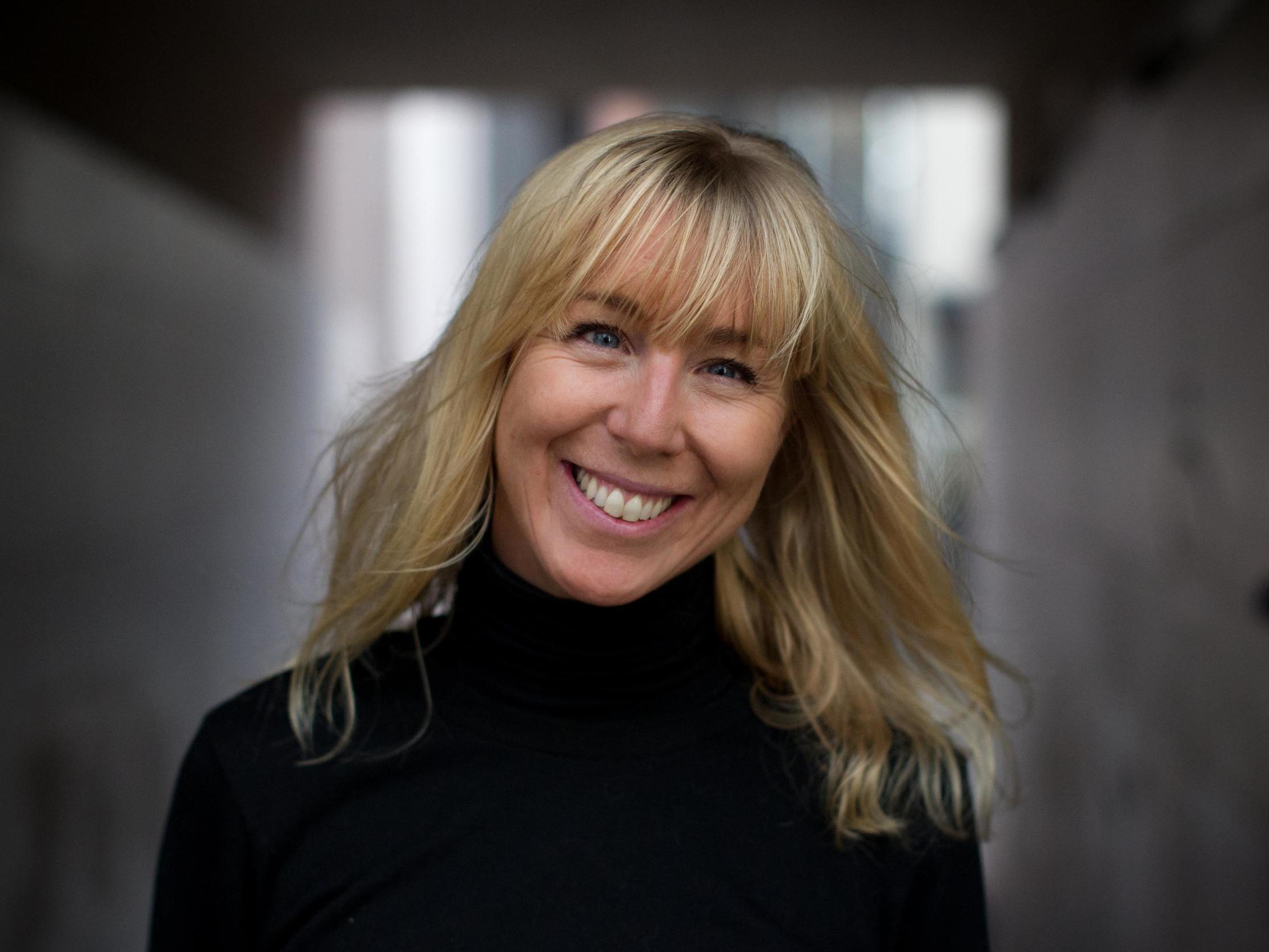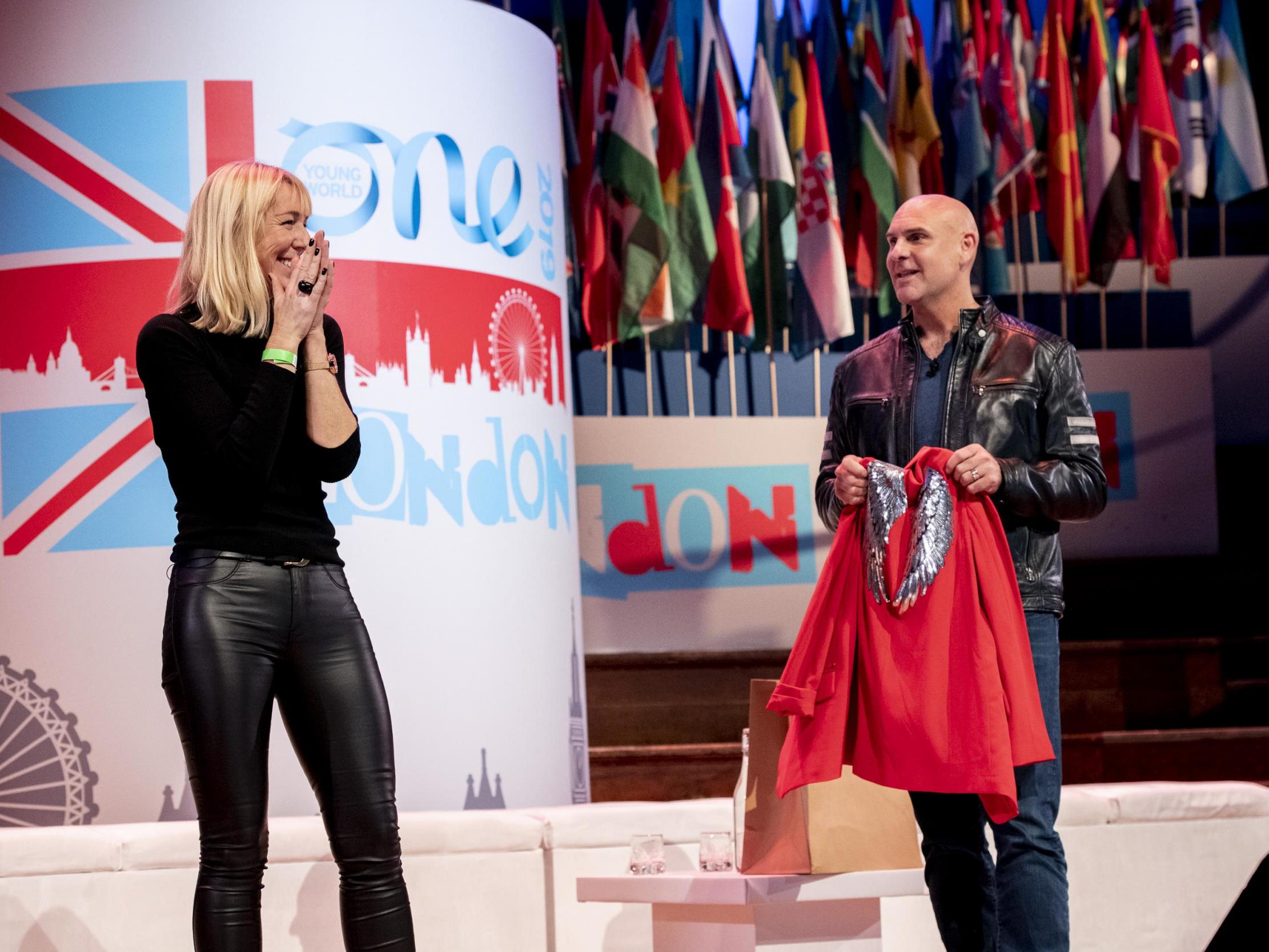The initiative calling on the top 500 companies to put disability on their agendas
Many disabled people face challenges in the workplace, writes Zlata Rodionova. But Caroline Casey is trying to change that with her Valuable 500 initiative


Caroline Casey was born legally blind but she didn’t know her vision was severely impaired until she was 17.
“I was diagnosed with ocular albinism at six months but my parents brought me up not knowing because they didn’t want me to be defined by a medical condition. I found out about it when I went to the eye specialist at 17 and mentioned that I wanted to get my driver’s licence,” Ms Casey tells The Independent.
The Irish entrepreneur might have never learnt how to drive but she never let her limited eyesight hold her back from success. Now she’s on a mission to put disability on the global business agenda.
Roughly 1.3 billion people worldwide have a physical impairment but, despite that huge number, many disabled people face challenges reaching their full potential in the workplace, according to Ms Casey.
In response to that, over the past two decades she has set up several organisations and initiatives that focus on disability business inclusion.
Her latest initiative, “The Valuable 500”, is a worldwide call for 500 companies to put disability on their agendas.
“Our mission is getting 500 of the world’s most influential brands and their chief executives to commit to having a leadership conversation about disability and making a commitment to action with a signature of the CEO,” she says.
Her aim is to hold corporate leaders accountable and unlock the business, social and economic value of people living with disabilities across the world.
And it seems to be working. In just a year, 268 companies have already signed up to support the campaign including leaders such as Virgin Group founder Sir Richard Branson, former EY chair and CEO Mark Weinberger, Accenture CEO Julie Sweet, as well as former Unilever CEO Paul Polman.
Together these companies represent a combined €4 trillion (£3.48 trillion) in business revenue and have 10 million employee across 22 countries and 42 sectors.
Ms Casey believes business has an essential role to play, as “no societal system can change without business leaders being involved”, and the current coronavirus pandemic makes the issue more urgent than ever.

“We have understood collectively what isolation and inclusion means so we must ensure we imply that empathy in business,” Ms Casey says.
“It is fascinating that when we talk about disability employment we call it accommodation, yet now that we are all working remotely we’re talking about business agility to adapt. It shows that business systems can change.
“Many of the practices we’ve seen being adapted so swiftly, like working from home or digital communication, are the same ones that allow those with disabilities to thrive.
“We’re seeing the disability community often being overlooked, not because people are bad but because disability hasn’t been seen as a valuable asset to society or to business. This crisis could be an opportunity for change.”
Her confidence and optimism seem remarkable but both her career and life story – shared at a 2017 Ted Talk that has now been watched by more than 2 million people – have always defied the odds.
She spent a few years jumping careers from masseuse to landscape gardener, before studying business at the University of Dublin.
After graduating wit a BA and an MA, she was hired as a management consultant at Accenture – without telling her employers that she was legally blind.
“Everybody wanted to work in some of the biggest companies in the world, so I thought that was what success looks like, and felt that is what I should do too.
“When I was entering the job market, the reason I didn’t talk about my disability is because I never saw a person with a disability getting a job at a company like Accenture. We were only starting to talk about gender, really. If anything, disability was seen as this charitable thing that you fundraised for.
“That’s really what contributed to me staying in the closet for so long, especially in an environment like Accenture where they recruit the best and you’re expected to work hard and play hard.”
The great disease out there is loneliness. But what I’d like to stress is that for many people with a disability the experience of isolation and exclusion is sadly the norm
Eventually, after two years at the company, her eyesight worsened, forcing her to “come out of the closet“ at the age of 28.
Accenture sent her to see an eye specialist – a meeting Ms Casey describes as a “turning point” in her life. Her doctor convinced her to take time off and helped her realise that it was “time to stop fighting her disability and hiding who she is”.
Following that meeting, she took a year’s sabbatical then left Accenture to set up her own not-for-profit organisation to promote a positive image of disability.
Ms Casey did a solo 1,000km (621 mile) trek across India on an elephant in 2001, raising €250,000 (£218,000) for the National Council for the Blind of Ireland and Sightsavers.
“In doing this journey, of being an Irish blind girl travelling on an elephant and raising money, covered by the National Geographic, you would think it would be a perfect opportunity for businesses to do good, but except Accenture not one company showed interest in supporting me.
“And the more I started to think about why I had denied my own disability, the better I understood the scale of the disability inequality crisis in the world, and it was just shocking.“
This led her to create the Ability Awards and Binc, engaging business leadership to create an inclusive world for the people affected by disability, and eventually led her to launch The Valuable 500.
According to research from EY, despite 90 per of companies claiming to prioritise diversity, only 4 per cent actually consider disability.
In the UK, of the 7.6 million people of working age with a disability, only 4.2 million are in employment (53 per cent), according to the latest date from the Office for National Statistic. This compares to 81.4 per cent of those without disabilities.
The Irish entrepreneur hopes the younger generations could be a drive for change: “The millennials have a different understanding of inclusion and identity than my generation. When Paul Polman started speaking about a sustainability push, people didn’t immediately take him seriously but his decisions had an impact. Brands with purpose have value.”
Ms Casey was aiming to increase the number of companies supporting the campaign to 500 by September, bringing the group’s membership in line with its name.
However, due to the coronavirus pandemic, her initial plan to announce the names of 500 leaders taking part at the United Nations General Assembly in New York has now been pushed back to January 2021 at the World Economic Forum in Davos.
Her small team of seven people continues to work through the crisis, and Ms Casey remains confident the organisation will meet its crucial goal on time.
“People often ask me how we managed to achieve what no leader has attempted before, being a core team of seven people. Honestly, it’s because we’re so little that we managed to do so much. It forced us to be motivated, resourceful and creative. The fact that we had leaders like Paul Polman behind us from the early days is also a massive help, of course.”
In her spare time, Ms Casey keeps herself busy with 5Rhythms classes, a mix of dance and movement meditation practice, which she describes as both creative and freeing. Like many of us, the lockdown has also prompted her to attempt to bake bread for the first time in her life.
As a self-proclaimed “hugger”, Ms Casey says she misses human interactions and is lucky to have her husband and dog for company.
“The great disease out there is loneliness. But what I’d like to stress is that for many people with a disability, the experience of isolation and exclusion is sadly the norm,“ she tells The Independent.
“My hope is that the Valuable 500 is going to help our business leaders to redesign their systems and built disability inclusion across the supply chain.
“This crisis is very painful but it is also an opportunity, and we have to make sure the pain we feel right now is worth something.”
Join our commenting forum
Join thought-provoking conversations, follow other Independent readers and see their replies
Comments